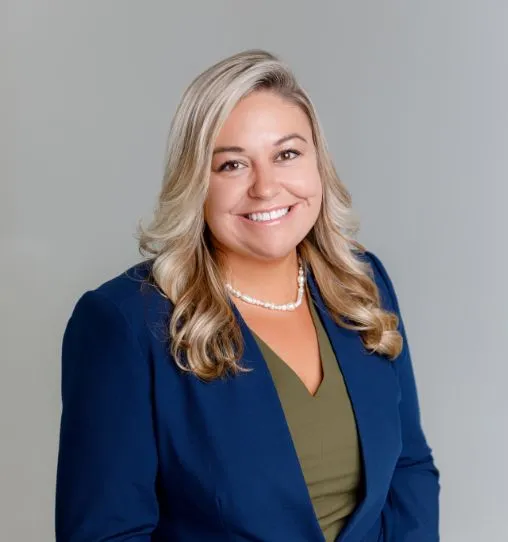Medical Malpractice
Roughly one in every ten deaths in the United States are the result of a medical error. For every fatality, there are countless other lives that are forever changed when the medical professional whom you trusted failed to do their job. Personal injury law allows you to file a lawsuit against the medical professional to receive compensation for the harm that they have caused you. However, you are looking at a lengthy and difficult legal process to get what you deserve. The medical malpractice attorneys at the Howard Stallings Law Firm are prepared to fight for you at every step of the way.

Examples of Medical Malpractice Cases
Doctors and medical professionals may commit medical malpractice by doing the following:

The doctor may not diagnose a condition in time to treat it, either missing it entirely or making an initially incorrect diagnosis.

A surgeon or anesthesiologist may make a mistake during a procedure that they should not have made had they been acting within the appropriate standard of care. In serious cases, they may even perform the wrong surgery or operate on the incorrect body part.

The hospital or surgical center may not provide proper care after a procedure, leading to complications, such as an infection at the surgery site.

The doctor may prescribe an incorrect medication that conflicts with others that the patient is taking, or they may use the wrong dosage. Medical staff may also make mistakes in administering the medication.

The doctor must adequately describe medical treatment to you before they obtain your consent, unless there are extreme emergency circumstances.

The obstetrician may fail to notice potential complications for delivery and fail to act accordingly. They could delay a c-section delivery or fail to take other precautions, leading to severe injuries to the child and/or mother.

Birth Injury Cases
Birth injury cases are among the more common types of medical malpractice claims. The doctor who provided prenatal care or delivered the baby may have been negligent by failing to diagnose potential complications or by not performing a caesarian section in enough time to prevent serious injury to the mother or baby.
An infant may suffer the following birth injuries from a doctor’s negligence:
- Cerebral Palsy
- Brachial Plexus Injuries
- Spinal Cord Injuries
- Caput Succedaneum
- Cephalohematoma
- Fetal Stroke
Birth injury cases are extremely high-stakes legal matters because you would need to secure enough money to treat the child’s injuries that may last a lifetime. In addition to the “standard” types of personal injury damages, the responsible party would need to pay for things like:
- Special education when the child cannot receive the customary education
- Adaptive medical equipment
- A caregiver to assist the child on a daily basis
- Lost wages for the parents, who need to take time off or leave their own job to care for a child
Children who have been injured by a doctor’s negligence often make for very sympathetic plaintiffs in front of a jury. Thus, you may have more leverage than you think when it comes to negotiating a settlement.

Severe Medical Malpractice Injuries
Brain damage is one of the most severe types of injuries that anyone can suffer, and they are sometimes the result of medical malpractice. Doctors can cause brain injuries through medical malpractice by doing the following:
- Failure to timely diagnose a medical condition involving the brain, such as a brain tumor, an aneurysm or a brain bleed
- Making a surgical error that causes the patient to lose access to oxygen for an extended amount of time
- Failure to properly monitor a patient after surgery, leading to complications
- Prescribing the wrong medication, or an incorrect dosage, leading to a severe adverse reaction
- Negligence during the prenatal and delivery process that can cause the baby to develop cerebral palsy or have a stroke in utero
- Failure to monitor the patient while they are under anesthesia, or administering the incorrect amounts during surgery
Medical malpractice can also lead to serious spinal cord injuries. For example, the physician could fail to spot symptoms of a potential spinal cord injury, costing the patient valuable treatment time and making the condition worse. A surgeon could make a mistake during a back or neck procedure that may lead to an irreversible spinal cord injury.
These types of medical malpractice injuries could lead to very large settlements or jury awards. You or a loved one would be dealing with significant effects of the injury for the rest of your life, and the doctor would have a legal obligation to pay for it.

Proving Medical Malpractice Cases
Medical malpractice cases proceed in the same way as any other personal injury lawsuit. You must prove that the medical professional was negligent to win your case.
Doctors are not expected to be superhuman or perfect. Medical malpractice law recognizes that you sometimes may not get the results that you want, and it is not always the doctor’s fault. Instead, you need to prove that the medical professionals failed to exercise the level of care that is expected of the average doctor. In other words, not every doctor is expected to act like the leading expert in their field.
You need to take a jury back to what happened in the doctor’s office or hospital room. Our lawyers would start by helping you to obtain your medical records. Then, you would need to compare what the doctor did versus what they should have done if they were acting reasonably.
Expert witnesses figure very prominently in any medical malpractice case. Before a medical malpractice case can be brought in North Carolina, there must be a qualified expert witness who gives their opinion that the doctor failed to meet the appropriate standard of reasonable care. They would testify about what they would have done if they were the treating doctor and point out where this particular medical professional failed to uphold their own duty of care.

Damages in a Medical Malpractice Case
When you can establish that a medical professional was negligent, you are entitled to financial compensation for your economic and non-economic damages. The medical professional likely carries a substantial insurance policy that can be used to pay for the harm you have suffered. In addition, a hospital or large medical practice may have a significant amount of assets that can be used pay for your injuries.
In a medical malpractice case, such damages include:
- Medical expenses
- Lost wages
- Pain and suffering
- Loss of enjoyment of life
- Scarring and disfigurement
- Loss of enjoyment of life
If a loved one died from medical malpractice, your family can file a wrongful death lawsuit. If you win or settle your case, you would be entitled to be paid for your own losses that you suffered when a close family member died as a result of medical negligence.
While punitive damages are rare in medical malpractice cases, punitive damages can greatly increase the size of your medical malpractice award if you win your case in front of a jury. You may be awarded these damages when the medical professional has made a serious error that demonstrated gross negligence, and the jury wants to punish or make an example out of them.

Why Medical Malpractice Lawsuits Are Difficult
Let’s face it: Medical malpractice cases have earned their reputation as being among the most difficult types of personal injury lawsuits.
Here are some reasons why medical malpractice cases can be difficult:
- Since there is so much money at stake, insurance companies and defendants will “lawyer up” with the best legal help that they can buy to defended against your lawsuit.
- Juries have a natural inclination to trust doctors, since they have lived their lives with the perception that doctors are experts and not likely to make mistakes.
- There are few witnesses for your side who may have seen the actual events transpired that caused your injuries, so you need to recreate what happened.
- Medical malpractice cases rely heavily on scientific evidence, so your attorney needs to understand exactly what went wrong and be able to prove it.
- Your attorney may be working with a multitude of expert witnesses who must be carefully chosen, based on their reputation and persuasiveness.
- There may be more than one responsible party, and your attorney would need to determine everyone who needs to be included in your claim or lawsuit.
- Medical malpractice cases unfold over a longer period of time than most personal injury lawsuits due to both their complexity and a lengthier trial process.
- Your damages may be very high, and you may need economic experts to help quantify the amount you will need to deal with the consequences of the medical negligence for many years into the future.

Contact a North Carolina Medical Malpractice Lawyer Today
When you need the help of an experienced medical malpractice attorney, consider the medical malpractice attorneys at the Howard Stallings Law Firm. We have been fighting for the rights of injured patients since 1983 , striving to hold medical professionals accountable when they failed to exercise the level of care expected of them. You can schedule a free initial consultation with one of our personal injury attorneys by messaging us through our website or calling us at 919-821-7700.
Source: https://www.forbes.com/advisor/legal/personal-injury/medical-malpractice/
Meet Our Attorneys






